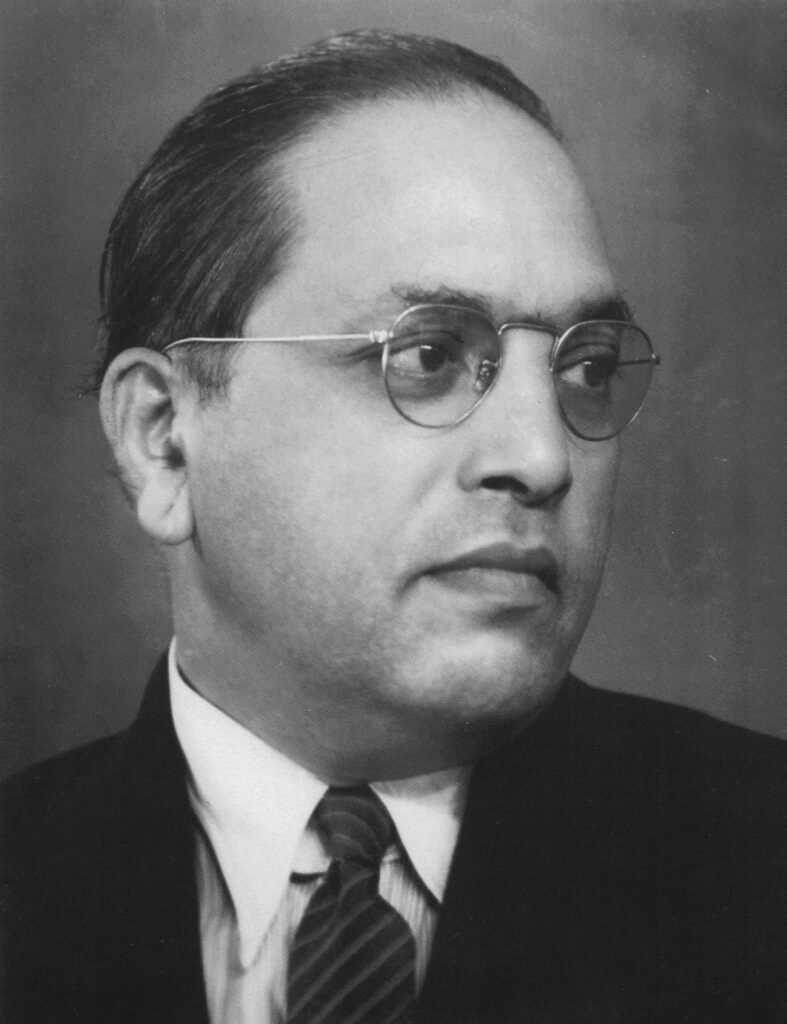Introduction:
In the annals of history, there are towering figures whose contributions transcend their lifetimes, leaving an indelible mark on society. Dr. Babasaheb Ambedkar, an eminent jurist, social reformer, and the architect of the Indian Constitution, stands as one such luminary whose legacy continues to inspire generations. Beyond his profound impact on shaping India’s democratic framework, Dr. Ambedkar’s relentless pursuit of social justice and his commitment to education remain unparalleled. In this blog post, we delve into the remarkable life of Dr. Ambedkar, highlighting not only his seminal achievements but also the academic journey that paved the way for his transformative leadership.

Early Life and Education:
Born on April 14, 1891, in Mhow, Madhya Pradesh, Bhimrao Ramji Ambedkar faced the harsh realities of caste discrimination from a young age. Despite encountering systemic barriers, he displayed exceptional academic prowess. Ambedkar’s pursuit of knowledge became his weapon against social inequities. He earned a Bachelor of Arts degree from the University of Bombay in 1912, followed by a Master of Arts in Economics and a Doctorate in Economics from the University of London in 1921 and 1923, respectively. His doctoral thesis on the “Problem of the Rupee” showcased his intellectual acumen and laid the groundwork for his future contributions to economic thought.
Legal Career and Advocacy:
Armed with a robust academic background, Dr. Ambedkar ventured into law, earning a degree from Gray’s Inn in London and a Doctorate in Jurisprudence from Columbia University, New York, in 1927. His legal expertise became instrumental in championing the rights of marginalized communities, particularly the Dalits (formerly known as untouchables). Throughout his career, he fervently advocated for social and political reforms to dismantle the oppressive caste system and ensure equality for all.
Architect of the Indian Constitution:
Dr. Ambedkar’s crowning achievement came in his pivotal role as the chairman of the Drafting Committee of the Constituent Assembly of India. His visionary leadership and unwavering commitment to social justice shaped the Constitution of India, which came into effect on January 26, 1950. The Constitution enshrined fundamental rights, equality before the law, and affirmative action policies to uplift marginalized sections of society. Dr. Ambedkar’s influence in drafting this seminal document earned him the title of the “Father of the Indian Constitution.”
Legacy and Impact:
Beyond his contributions to law and governance, Dr. Ambedkar’s legacy endures as a beacon of hope for millions striving for equality and justice. His emphasis on education as a means of empowerment continues to resonate, inspiring numerous educational initiatives aimed at uplifting underprivileged communities. Institutions such as the Dr. Babasaheb Ambedkar Open University in Gujarat and the Dr. Babasaheb Ambedkar Technological University in Maharashtra stand as testaments to his enduring legacy.
Conclusion:
Dr. Babasaheb Ambedkar’s life exemplifies the transformative power of education and the relentless pursuit of social justice. His multifaceted accomplishments, coupled with his unwavering dedication to uplifting the downtrodden, make him a towering figure in Indian history and beyond. As we commemorate his legacy, let us reaffirm our commitment to his ideals of equality, fraternity, and justice for all. Dr. Ambedkar’s legacy serves as a guiding light, reminding us that even in the face of adversity, positive change is possible through education, activism, and unwavering determination
Leave a Reply